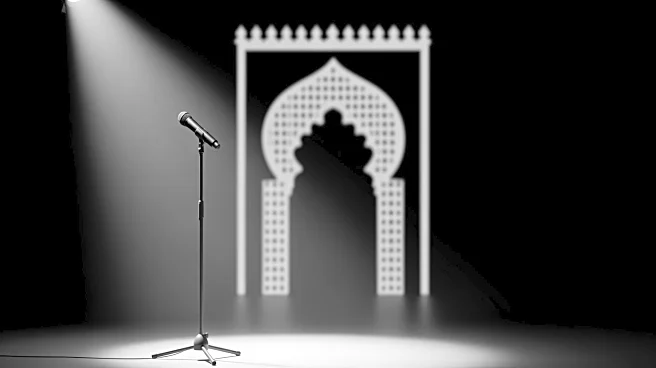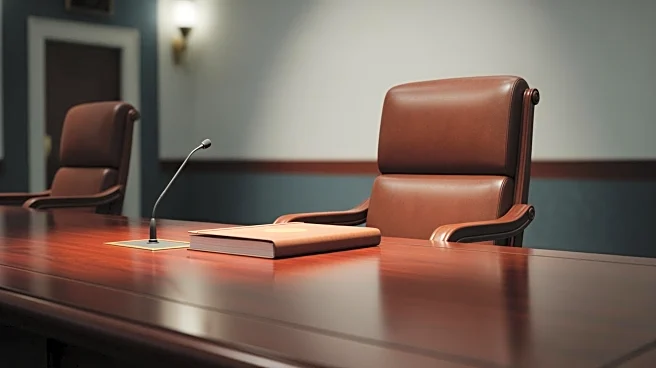What's Happening?
The Riyadh Comedy Festival, held from September 26 to October 9, features prominent comedians such as Dave Chappelle, Pete Davidson, and Kevin Hart. However, these performers have notably avoided making
jokes about Saudi Arabia's government and its human rights record. This avoidance comes amid reports that the comedians were required to sign contracts prohibiting jokes about religion or the Saudi royal family. The festival has been criticized by human rights organizations, including Human Rights Watch, which views it as an attempt by Saudi Arabia to distract from its human rights violations. Despite the restrictions, some comedians have included controversial content in their sets, such as jokes about transgender people, which have drawn criticism.
Why It's Important?
The festival highlights the tension between artistic expression and censorship in Saudi Arabia, a country known for its strict laws against free speech and LGBTQ+ rights. The participation of high-profile comedians in the festival, despite these restrictions, raises questions about the role of entertainers in advocating for human rights. The significant financial incentives offered to performers have sparked debate about the ethics of participating in events that may serve to whitewash a country's human rights record. This situation underscores the broader issue of how international artists navigate performing in countries with controversial policies.
What's Next?
The festival's conclusion may prompt further discussions among comedians and human rights advocates about the responsibilities of artists in such contexts. Human Rights Watch and other organizations may continue to pressure performers to use their platforms to address human rights issues. The international community will likely scrutinize future cultural events in Saudi Arabia, assessing whether they contribute to meaningful change or merely serve as public relations exercises.
Beyond the Headlines
The festival's dynamics reflect a broader trend of authoritarian regimes using cultural events to improve their global image. This raises ethical questions about the complicity of international artists in such efforts. The situation also highlights the challenges faced by entertainers in balancing financial opportunities with their personal and professional values.









